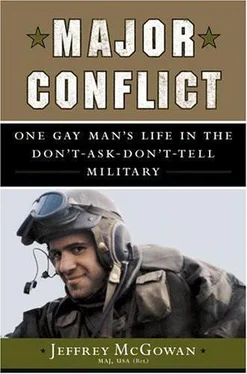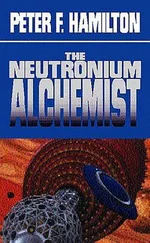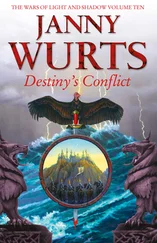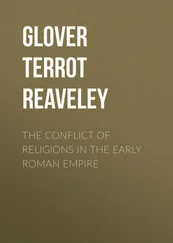“He’s alive, but, unfortunately, the word is the boy’s pretty fucked up,” he said. “They say he’ll probably never walk again. Spinal cord. Not much they can do.”
Walking back to my bunk that night, I tried to process what he’d said and what I’d seen that afternoon and how I felt. Nothing seemed to want to come together. It just seemed so ludicrous, so enormously random and unfair. Now this boy of no more than twenty-two was doomed to spend his entire life in a wheelchair, his strong limbs left to shrivel away pathetically, all the freedom and vitality of his youth snatched away in an instant, without even as much as a peep of explanation from the universe.
Accidents and death happen in every profession, I reminded myself; but I hadn’t chosen just any profession, I’d chosen the only one in which a pledge of your life, your very breath and blood, is a prerequisite. Is this what I really wanted? Advanced Camp was merely a training exercise. You’re not supposed to get killed or maimed or paralyzed in training. This was a fluke, this boy on the rock. I tried to comfort myself, lying in bed that night, but it wouldn’t work. The reality of my choice had been made clear. I’d have to be prepared for this sort of thing. If we ever went to war, it would no doubt be a lot worse. I was fast learning that there was a big difference between rhetoric and reality, and that life, and life in the army especially, is serious business indeed.
CHAPTER FOUR
Coins and Butter Bars
The accident notwithstanding, my experience at Advanced Camp was overall a good one. I’d gone down to North Carolina thinking it would be a piece of cake and discovered it was pretty challenging. I ended up being evaluated as a three out of that possible five. Not bad, but no Eisenhower. I was disappointed, felt I could’ve gotten a four had I gone in a little more focused, and I caught hell from the cadre when I returned to school. But after a few ass-chewings they let the matter go. And for senior year, I was promoted to commander of the entire corps of cadets.
By the time I officially started my senior year at Fordham, I’d already made up my mind that I wanted to serve in the infantry and go into the Eighty-second Airborne. I let the detachment commander know and asked him to do what he could for me. I even wrote a letter to the battalion saying that I wanted to serve with Second Battalion, 505th Parachute Infantry Regiment (PIR). It turned out that I would actually serve with them a few years later, though in a different capacity. Of course I didn’t know that at the time. I felt pretty confident I was going to get what I wanted. But the army was short artillery men in the late eighties, so I ended up being assigned there. I was disappointed at first but then less so once I’d learned a bit more about the artillery. I was to report to Fort Sill, Oklahoma, two weeks after graduation.
I was the first in my family to graduate from college, and my grandmother was thrilled. For years afterward she bragged to everyone just how proud she was on my commencement day at Fordham and how much it would’ve meant to my grandfather had he been alive to see it. I was glad to make her proud.
I was commissioned a few days after commencement in a ceremony that was subdued compared to the large graduation ceremony at Fordham. The detachment commander put us in formation and called each one of us up to pin the “butter bar,” the bar for second lieutenant, on our shoulders. After a few perfunctory remarks the formation was dismissed. Then, as the time-honored tradition dictates, each newly minted second lieutenant took his first salute, bearing a coin that tradition also dictates he give to the officer from whom he’s chosen to receive this first salute.
The tradition of giving coins in the military is a fairly old one. It’s a form of reward and recognition that commanders at all levels use in place of medals. The coins are larger than regular currency, more like medallions, usually one and a half to two inches in diameter. Every unit has one that is unique to it, bearing the insignia or arms of the unit or some other symbol, like airborne wings or unit patches on either side. They’re used to encourage esprit de corps. For example, every member of a unit will be given one on the condition that they bear it all times as a symbol of pride and belonging. Sometimes they hold more practical value; for instance, a general will award one that, when presented to a commander, guarantees a three-day pass or some other incentive. Soldiers tend to collect them over the lifetime of their career.
For those of us who trained under SMG Robert Carpenter, it was a no-brainer which officer we’d take our first salute from and present our coin to. And so we all lined up and stood patiently as, one by one, we filed by our mentor and hero, and he saluted and graciously received our coins of gratitude.
CHAPTER FIVE
Steel on Target
I was a soldier at last! And off to strange and distant lands! Well, Oklahoma, at least. Some people say New Yorkers are the most provincial people on earth, after Parisians, and I guess I was no exception. Like most New Yorkers, I tended to believe that the city of my birth was the center of the universe. Anything west of the Hudson River (with the exception, maybe, of Hoboken and Jersey City) was, in my mind, inspiration for TV shows like Little House on the Prairie. I knew that where I was going was different from where I’d been; what I didn’t realize was just how different. I remember getting off the plane and finding myself discombobulated by the people in the airport. For some reason, and to this day I don’t know why, there seemed to be a disproportionate number of disabled people: people missing hands, legs, hunchbacked people. Looking back on it now I don’t think Lawton, Oklahoma, had a higher number of people with birth defects or disabilities at that time, I think I was so freaked out by being in a new place that all I could see was difference. By the time I walked out of the airport things seemed to normalize, and I didn’t spot one person missing a limb. But still, what a different world I had entered. Oklahoma! Where the wind comes sweeping down the plain! Isn’t that how the song from the musical goes? I’d been to North Carolina, but that was still the East Coast, not that much different from New York, really. I think it’s a matter of scale. Everything seemed so much bigger, wider, more open, so much space that seemed to be unclaimed, unlike New York, where people buy even the rights to the sky. My concept of Oklahoma had come mostly from the movie version of the musical: pastures of velvet green gently swaying in the wind and carefree young girls in pigtails running around beneath a big clear blue sky, breathing in the freshest of air, delirious with joy. Sitting in the back of the cab on my way to Fort Sill, I was amazed at how perfectly the actual place seemed to match my romantic preconception of it. Looking out the window, I marveled at the fields as we drove along the highway. They seemed endless and so green, a shade of green I swear I’d never seen before, rolling out beneath a sky so big and so deeply blue that it almost seemed as if I’d arrived on a different planet. Large bales of hay dotted the flat landscape along with cows mindlessly chewing their cuds. I tried to joke with the driver by asking him what breed of large dogs they were, but he wasn’t amused. He simply grunted kind of grudgingly just like a New York cabbie, and I realized things weren’t completely different here in the Midwest; I was still on planet Earth.
Still, I was quickly learning that New York is not, in fact, the center of the universe. And years of traveling around the country has made me realize that Lawton, Oklahoma, is far more like the rest of America than New York City is. Living well and simply and knowing how to enjoy the real things in life, that’s what people in the heartland seem to know best how to do, and I’ve come to appreciate that a great deal. Every romance has its moment of clarity, however, the moment when real life comes clamoring back in. As we entered the town I realized I wasn’t in the Rodgers and Hammerstein musical after all. Every army town has a group of businesses that thrive with the proximity of the troops. These businesses reflect the makeup of those troops—most soldiers are young men. In many ways a federal installation is a kind of great piñata of cash waiting to be broken open. Lawton was no exception. It had a dreary strip of topless bars, pawn-shops, army-navy stores, Korean and Vietnamese restaurants, German bakeries, paintball suppliers, hunting shops, and, of course, a good many used-car dealerships.
Читать дальше












